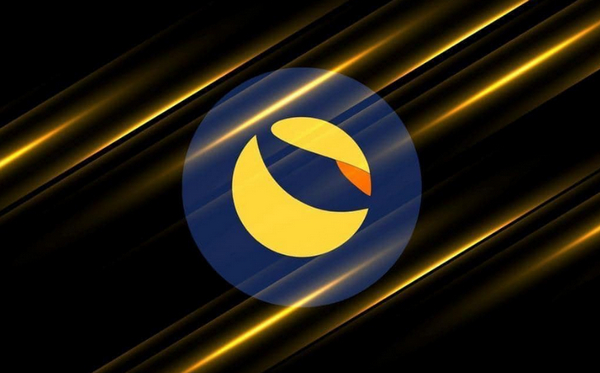-
 Bitcoin
Bitcoin $94,384.5500
0.07% -
 Ethereum
Ethereum $1,803.6634
-0.65% -
 Tether USDt
Tether USDt $1.0003
-0.02% -
 XRP
XRP $2.2746
3.63% -
 BNB
BNB $606.1228
-0.34% -
 Solana
Solana $149.1449
0.17% -
 USDC
USDC $0.9999
-0.03% -
 Dogecoin
Dogecoin $0.1820
0.48% -
 Cardano
Cardano $0.7130
0.83% -
 TRON
TRON $0.2472
-2.13% -
 Sui
Sui $3.6228
3.68% -
 Chainlink
Chainlink $14.6745
-1.35% -
 Avalanche
Avalanche $22.0379
-1.11% -
 Stellar
Stellar $0.2861
-1.60% -
 Toncoin
Toncoin $3.3514
0.55% -
 UNUS SED LEO
UNUS SED LEO $9.0813
0.27% -
 Hedera
Hedera $0.1908
-0.20% -
 Shiba Inu
Shiba Inu $0.0...01365
-3.17% -
 Bitcoin Cash
Bitcoin Cash $348.4758
-2.23% -
 Litecoin
Litecoin $86.3978
-1.38% -
 Polkadot
Polkadot $4.1244
-3.97% -
 Hyperliquid
Hyperliquid $17.5684
-1.37% -
 Dai
Dai $1.0000
0.00% -
 Bitget Token
Bitget Token $4.3784
-0.87% -
 Ethena USDe
Ethena USDe $0.9995
-0.01% -
 Pi
Pi $0.6359
-2.31% -
 Monero
Monero $229.6819
0.16% -
 Pepe
Pepe $0.0...08875
-2.54% -
 Uniswap
Uniswap $5.5884
-3.65% -
 Aptos
Aptos $5.4301
-3.16%
When was LUNC coin issued? Learn about the origin of LUNC coin in one article
The LUNC coin, formerly known as LUNA, emerged in 2019 as the backbone of the Terra blockchain ecosystem, facilitating its transactions and stabilizing its stablecoins, particularly UST.
Oct 31, 2024 at 10:34 am

Understanding the Origins of LUNC Coin: A Comprehensive Guide
1. Genesis of the LUNC Coin
The roots of the LUNC (Luna Classic) coin can be traced back to May 2019, when it was introduced as an integral component of the Terra blockchain ecosystem. The founder of this project was Do Kwon, a South Korean entrepreneur who sought to revolutionize the cryptocurrency industry.
Originally known as the LUNA token, it operated as the backbone of the Terra blockchain, facilitating transactions and supporting the stability of the platform's stablecoins, primarily TerraUSD (UST).
2. LUNA Foundation Guard (LFG)
LUNC coin played a crucial role in the Terra ecosystem, particularly through the establishment of the LUNA Foundation Guard (LFG). This non-profit organization was designed to safeguard the ecosystem's stability and foster its growth. The LFG's main strategies involved acquiring billions of dollars in Bitcoin and other cryptocurrencies as reserves to back the stability of UST.
3. The Rise and Fall of UST
TerraUSD (UST) was a stablecoin pegged to the value of the US dollar. To maintain this peg, the Terra blockchain utilized an innovative burning mechanism that involved the creation and destruction of LUNA tokens.
However, on May 7, 2022, a series of events led to a catastrophic collapse of UST, causing it to lose its peg to the dollar and triggering a severe sell-off of LUNA tokens. This event, often referred to as the "Terra Luna Crash," sent the crypto market into a downward spiral.
4. The Phoenix Rises: LUNC Coin Rebirth
In the aftermath of the UST crash and the subsequent collapse of Terra, the Terra blockchain underwent a significant transformation. The original Terra blockchain and LUNA token were rebranded as Terra Classic (LUNC), while a new Terra blockchain and token, LUNA (now known as LUNA 2.0), were introduced.
5. LUNC Coin's Current Status
Since the Terra Luna Crash, LUNC coin has experienced significant fluctuations in its value. Despite the tumultuous events surrounding its past, the coin has retained a loyal community of supporters who believe in its potential for recovery.
LUNC coin is actively traded on various cryptocurrency exchanges, with OKX being the largest in terms of trading volume. The value of LUNC is determined by market forces, and its price has been highly volatile since the Terra Luna Crash.
Disclaimer:info@kdj.com
The information provided is not trading advice. kdj.com does not assume any responsibility for any investments made based on the information provided in this article. Cryptocurrencies are highly volatile and it is highly recommended that you invest with caution after thorough research!
If you believe that the content used on this website infringes your copyright, please contact us immediately (info@kdj.com) and we will delete it promptly.
- The altcoin market experienced an intense week, with several most promising meme cryptocurrencies recording impressive gains.
- 2025-04-28 05:20:13
- Another Bullish Indicator for Bitcoin: Valuation Reaches Key Inflection Point
- 2025-04-28 05:20:13
- The pace is unstoppable and XenDex is leading the charge.
- 2025-04-28 05:15:12
- Bitcoin (BTC) Price Prediction: Expert Views This Position as Crucial to Reach a Record High of Over $150,000
- 2025-04-28 05:15:12
- TRON (TRX) Price Prediction: Targeting $0.45 Breakout as Network Surpasses $70 Billion in USDT Supply
- 2025-04-28 05:10:14
- Bitcoin (BTC/USD) Next Resistance Level Flagged, Potential Bearish Signal Amid Resurgence
- 2025-04-28 05:10:14
Related knowledge

What is Ethereum’s Slashing mechanism and how to punish malicious behavior?
Feb 20,2025 at 03:08am
Key PointsOverview of slashingDifferent types of slashing in EthereumIncentives and consequences of slashingIdentifying and reporting slashed validatorsOngoing discussions and potential improvementsEthereum's Slashing Mechanism: Punishing Malicious BehaviorEthereum's slashing mechanism is an essential tool for ensuring network security and punishing mal...

What is the verifier node of Ethereum and how to become a verifier?
Feb 19,2025 at 06:00pm
The Verifier Node of Ethereum: A Comprehensive GuideKey Points:What is a Verifier Node?How to Become a Verifier NodeResponsibilities and Rewards of a Verifier NodeMinimum Requirements for Becoming a Verifier NodePotential Difficulties in Running a Verifier Node1. What is a Verifier Node?A Verifier Node is an independent entity on the Ethereum network th...

What is Ethereum’s staking, and how to participate and earn money?
Feb 19,2025 at 04:37pm
Key Points:Understanding Ethereum's Staking MechanismSteps to Participate in StakingBenefits and Rewards of StakingSecurity and Risk ConsiderationsTechnical Requirements and Hardware OptionsPotential Challenges and Troubleshooting TipsFAQs on Ethereum StakingWhat is Ethereum's Staking?Proof-of-Stake (PoS) is a consensus mechanism used in blockchain netw...

What is Ethereum’s DAO (Decentralized Autonomous Organization) and how does it work?
Feb 20,2025 at 03:12am
Key PointsDefinition and Structure of a DAOGovernance and Decision-Making in DAOsBenefits and Use Cases of DAOsChallenges and Limitations of DAOsWhat is Ethereum's DAO (Decentralized Autonomous Organization) and How Does It Work?Definition and Structure of a DAOA Decentralized Autonomous Organization (DAO) is an innovative governance and management fram...

What is Ethereum's multi-signature wallet and how to improve security?
Feb 20,2025 at 02:18pm
Key Points:Understanding the Concept of a Multi-Signature WalletBenefits and Drawbacks of Multisig WalletsRequirements for Setting Up a Multisig WalletStep-by-Step Guide to Generating a Multisig WalletImplementing Strategies for Enhanced Security1. Understanding the Concept of a Multi-Signature WalletA multi-signature (multisig) wallet in the Ethereum e...

What is Ethereum's oracle and how to provide data for smart contracts?
Feb 21,2025 at 01:30am
Key Points:Understanding the concept of oracles in EthereumExploring different types of oraclesDetailed guide on how to provide data for smart contractsAddressing potential challenges and considerationsWhat is Ethereum's Oracle?Oracles are crucial components in the Ethereum ecosystem, enabling smart contracts to access real-world data and off-chain even...

What is Ethereum’s Slashing mechanism and how to punish malicious behavior?
Feb 20,2025 at 03:08am
Key PointsOverview of slashingDifferent types of slashing in EthereumIncentives and consequences of slashingIdentifying and reporting slashed validatorsOngoing discussions and potential improvementsEthereum's Slashing Mechanism: Punishing Malicious BehaviorEthereum's slashing mechanism is an essential tool for ensuring network security and punishing mal...

What is the verifier node of Ethereum and how to become a verifier?
Feb 19,2025 at 06:00pm
The Verifier Node of Ethereum: A Comprehensive GuideKey Points:What is a Verifier Node?How to Become a Verifier NodeResponsibilities and Rewards of a Verifier NodeMinimum Requirements for Becoming a Verifier NodePotential Difficulties in Running a Verifier Node1. What is a Verifier Node?A Verifier Node is an independent entity on the Ethereum network th...

What is Ethereum’s staking, and how to participate and earn money?
Feb 19,2025 at 04:37pm
Key Points:Understanding Ethereum's Staking MechanismSteps to Participate in StakingBenefits and Rewards of StakingSecurity and Risk ConsiderationsTechnical Requirements and Hardware OptionsPotential Challenges and Troubleshooting TipsFAQs on Ethereum StakingWhat is Ethereum's Staking?Proof-of-Stake (PoS) is a consensus mechanism used in blockchain netw...

What is Ethereum’s DAO (Decentralized Autonomous Organization) and how does it work?
Feb 20,2025 at 03:12am
Key PointsDefinition and Structure of a DAOGovernance and Decision-Making in DAOsBenefits and Use Cases of DAOsChallenges and Limitations of DAOsWhat is Ethereum's DAO (Decentralized Autonomous Organization) and How Does It Work?Definition and Structure of a DAOA Decentralized Autonomous Organization (DAO) is an innovative governance and management fram...

What is Ethereum's multi-signature wallet and how to improve security?
Feb 20,2025 at 02:18pm
Key Points:Understanding the Concept of a Multi-Signature WalletBenefits and Drawbacks of Multisig WalletsRequirements for Setting Up a Multisig WalletStep-by-Step Guide to Generating a Multisig WalletImplementing Strategies for Enhanced Security1. Understanding the Concept of a Multi-Signature WalletA multi-signature (multisig) wallet in the Ethereum e...

What is Ethereum's oracle and how to provide data for smart contracts?
Feb 21,2025 at 01:30am
Key Points:Understanding the concept of oracles in EthereumExploring different types of oraclesDetailed guide on how to provide data for smart contractsAddressing potential challenges and considerationsWhat is Ethereum's Oracle?Oracles are crucial components in the Ethereum ecosystem, enabling smart contracts to access real-world data and off-chain even...
See all articles























































































